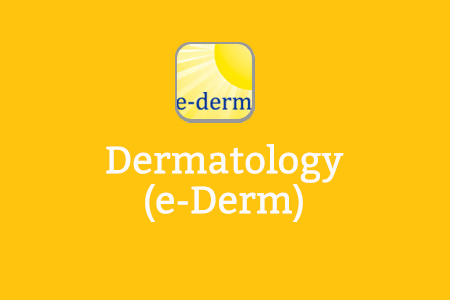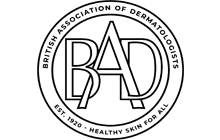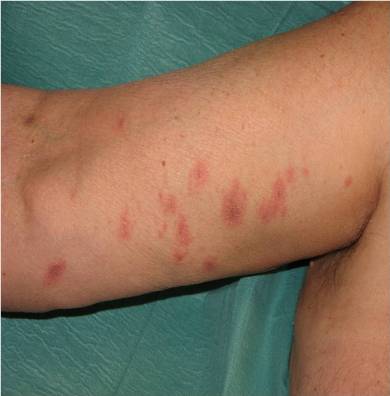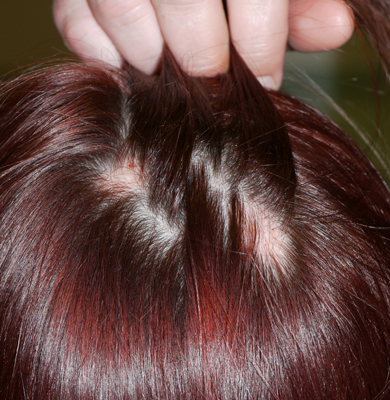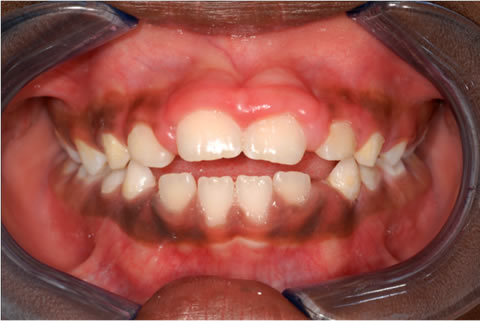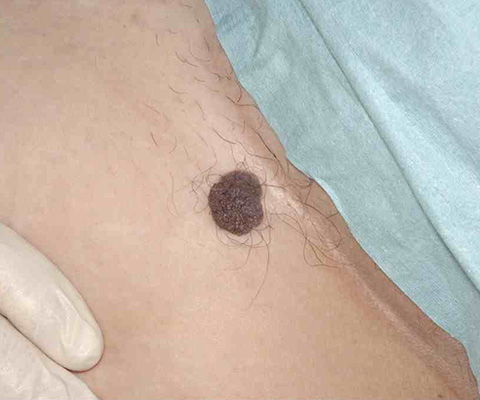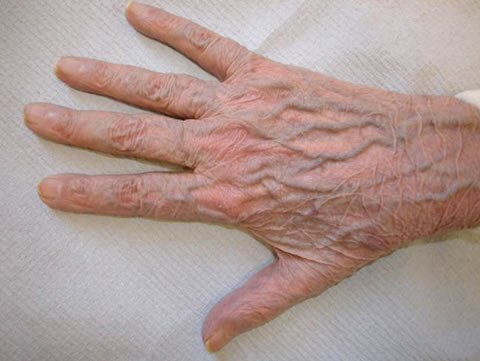About the Dermatology programme
e-dermatology is an online learning resource which focuses on the diagnosis and management of common dermatological disorders. Initially designed for trainees, it is now available, free of charge, to all clinicians and healthcare professionals including junior doctors, specialty doctors, GPs, physician associates (PAs) and nurses working in the NHS.
It has been developed by the British Association of Dermatologists (BAD) in partnership with NHS England Technology Enhanced Learning and was first launched in 2010.
Learning is based on the Joint Royal Colleges of Physicians Training Board curriculum for specialist training in dermatology. Interactive and engaging elearning sessions covering all areas of the approved curriculum are provided.
Since 2017, the sessions have been accessed between 21,000 and 35,000 times per year. Sessions on Specialist Certificate Examination (SCE) questions, psoriasis, eczema, other common inflammatory diseases and their treatments, melanoma and other skin cancers are particularly popular with learners.
More information
e-dermatology is intended to complement existing teaching initiatives, rather than replace them, and is available, free of charge, to all NHS staff.
All the sessions can now be linked with the e-Portfolio to enhance the accurate documentation for trainees and other healthcare professionals to support completion of specific areas of training.
The elearning sessions take approximately 20 minutes to complete, to fit in with busy working lives. They can be used for interactive and remote learning.
Some of the exciting features of these elearning materials include the use of high resolution images, videos clips and animated interactions, to enrich the learning experience and increase visual accessibility.
As well as a forthcoming dedicated skin of colour learning session, all authors have been encouraged to integrate skin of colour issues in their learning sessions, where possible, and provided links to relevant BAD resources.
e-dermatology offers clinical scenario and knowledge-based sessions.
Clinical scenarios allow the learner to follow cases from initial presentation to diagnosis and management.
Knowledge based sessions offer high quality curriculum-based content featuring graphics, animations, video and interactive questions.
Learners can work through any sessions relevant to their specific training needs, in any order they choose.
Latest Sessions
-
Biologics in psoriasis
Biologics are increasingly used in the management of moderate to severe psoriasis. This session describes some clinical scenarios mimicking the real-life decisions faced in clinic when starting patients on a biologic.
-
Lichen planus
This session describes a clinical scenario in which a patient presents with a rash. It illustrates the steps required to establish the diagnosis and then to institute appropriate management.
-
Localised alopecia
This session describes a patient with patchy hair loss. It illustrates the steps required to establish the diagnosis and describes the institution of an appropriate management plan.
-
Anatomy of the mouth and examination technique
This session outlines a structured approach to examining the mouth, important anatomy of the mouth, and anatomical and physiological variants of normal. The use of oral scoring methodologies which are used in certain diseases is summarised.
-
Benign and malignant pigmentation in the mouth
Pigmented lesions are commonly found in the mouth and can range from physiological changes to manifestations of systemic illnesses and malignant neoplasms. This session outlines the main causes of oral pigmentation and how they may be diagnosed and managed.
-
Oral lichen planus
This session describes and introduces the presentation, diagnosis and management of lichen planus within the oral cavity, highlighting the role of specialist oral medicine colleagues with dermatology specialists in this field.
-
Suturing skills 1
This session reviews the fundamentals of simple surgical wounds and the principles and practice of basic suturing.
-
Genital swelling
This section will cover causes of genital swelling. The lax tissue of the vulva and scrotum makes these areas vulnerable to fluid accumulation. Swelling may be divided in to acute and chronic types.
-
Subcutaneous mycoses and other mycoses
This session describes subcutaneous and systemic mycoses. The clinical features, histopathology, differential diagnosis, prognosis and therapy will be explained.
-
Topical corticosteroids and appropriate use in dermatology 2
This session describes the potential side-effects caused by the use of corticosteroids. It describes both local and systemic side-effects, as well as the factors that potentially enhance side-effects.
-
Cytotoxics and imiquimod
This session covers topical antineoplastic therapy with 5-fluorouracil and imiquimod. This includes historical, biological and practical aspects.
Executive group

Mabs Chowdhury FRCP FAcadMEd
Clinical Lead for e-Dermatology, British Association of Dermatologists (BAD) Consultant Dermatologist and Honorary Senior Lecturer, The Welsh Institute of Dermatology, Cardiff
Vincent Li
Deputy Lead for e-Dermatology, British Association of Dermatologists (BAD) Consultant Dermatoloigst, Princess of Wales Hospital, Bridgend
Tamara Griffiths
Director of Education, British Association of Dermatologists
Simon Morrison
Chief Executive Officer, British Association of Dermatologists (BAD)
Tanya Bleiker
President , British Association of Dermatologists (BAD)
Project group

Mabs Chowdhury FRCP FAcadMEd
Clinical Lead for e-Dermatology, British Association of Dermatologists (BAD) Consultant Dermatologist and Honorary Senior Lecturer, The Welsh Institute of Dermatology, Cardiff
Vincent Li
Deputy Lead for e-Dermatology, British Association of Dermatologists (BAD) Consultant Dermatoloigst, Princess of Wales Hospital, Bridgend
Steve Thompson
Senior Project Manager, NHSE TEL elearning for healthcare
Sarah Gray
Programme Manager, NHSE TEL elearning for healthcare
Jasmine Deol
Learning Designer , NHSE TEL elearning for healthcare
Paul Kelly
Learning Designer , NHSE TEL elearning for healthcare
Louise Garrahan
Stakeholder officer, HEE, elfh
How to access
In order to access any elfh programme, you will need an elfh account. If you do not have one, then you can register by selecting the Register button below.
To view the Dermatology programme, select the View button below. If you already have an account with elfh, you will also be able to login and enrol on the programme from the View button.
If you already have an account with elfh, then you can enrol on to the Dermatology programme by logging in to the elfh Hub, selecting My Account > Enrolment and selecting the programme. You can then access the programme immediately in the My e-Learning section.
NHS healthcare staff in England – ESR
The Dermatology programme is also available to NHS healthcare staff via the Electronic Staff Record (ESR). Accessing this e-learning via ESR means that your completions will transfer with you throughout your NHS career.
Further details are available here.
Not an NHS organisation?
If you are not an NHS health or care organisation and therefore do not qualify for free access elfh Hub, you may be able to access the service by creating an OpenAthens account.
To check whether or not you qualify for free access via OpenAthens, you can view the eligibility criteria and register on the ‘OpenAthens’ portal.
Registering large numbers of users
If you are a HR, IT or Practice Manager and would like to register and enrol large numbers of staff within your organisation for access onto the Endoscopy programme, please contact elfh directly.
Organisations wishing to use their own LMS
For HR departments wanting to know more about gaining access to courses using an existing Learning Management System please contact elfh directly to express interest.
More information
Please select the following link for more information on how to use the elfh Hub.
Select here for more information on the authorisations process to run reports on the learning activity of staff.
Select the following link for more information about CPD points.



